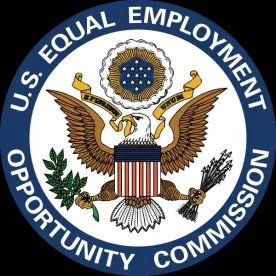For years, U.S. employers with international operations have struggled to understand their obligations under the Older Workers Benefit Protection Act (OWBPA) when implementing reductions-in-force and group layoffs. In a January 14, 2021, formal opinion letter, the Equal Employment Opportunity Commission (EEOC) clarified that non-U.S. citizen employees working abroad may be excluded from OWBPA disclosures because such individuals are not “employees” for purposes of the Age Discrimination in Employment Act of 1967 (ADEA). Significantly, this opinion letter may be relied upon by employers and constitutes binding legal authority in any proceedings brought against an employer.
Under the OWBPA, which amended the ADEA, an employee may not waive any rights provided by the ADEA unless the waiver is “knowing and voluntary.” 29 U.S.C. § 626(f). When an employer requests such a waiver in the context of a group termination program, the OWBPA requires that the employer provide each employee with detailed disclosures regarding:
-
Any class, unit, or group of individuals covered by such program;
-
Any eligibility factors for such program;
-
The job titles and ages of all individuals eligible or selected for the program; and
-
The ages of all individuals in the same job classification or organizational unit who are not eligible or selected for the program.
Id. §§ 621(f)(1)(H)(i), (ii).
The EEOC refers to the “class, unit, or group” of individuals “eligible or selected for the program” as the “decisional unit.” 29 C.F.R. § 1625.22(f)(3)(i)(B).
Due to lack of OWBPA guidance, U.S. employers with international operations have faced uncertainty when preparing disclosures regarding the decisional unit. These employers are subject to the ADEA, but frequently employ a diverse multinational workforce, operating under a variety of foreign laws.
Responding to such an employer’s inquiry, the EEOC approved a formal opinion letter that states employers subject to the ADEA are not required to include in OWBPA disclosures non-U.S. citizen employees working outside the United States “because such individuals are not ‘employees’ for purposes of the ADEA.” The letter states that the ADEA protects workers in the United States regardless of citizenship status, U.S. citizens working outside the United States for American employers, but not non-U.S. citizens working abroad. 29 U.S.C. § 630(f). It follows that neither the ADEA nor the OWBPA contains a global mandate, the letter continues. Further, including non-covered employees in “decisional units” would distort the information provided to employees considering the waiver, making it harder to evaluate the exit incentives or termination program, and frustrating the objectives of the ADEA and the OWBPA disclosures, the letter states.
Finally, the EEOC deemed it inappropriate to include non-U.S. citizens working abroad in the disclosures because: (1) “differing eligibility or selection criteria for domestic and international employees may result in distinct decisional units for such respective groups of employees;” (2) employers may be required to offer different separation benefits to employees working abroad in order to comply with the respective foreign country’s employment laws; and (3) employees working abroad may not be eligible for the same severance benefits as employees working in the United States.





 />i
/>i

